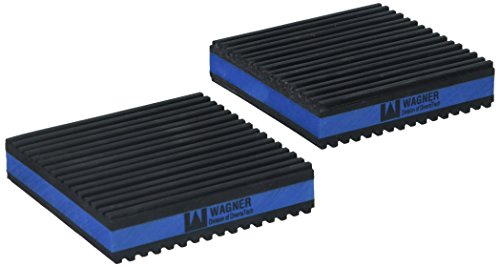If you're remodeling your laundry room, you've probably noticed that flooring isn't cheap! For how much it costs, you'll want something that can last a long time. But the laundry room floor is vulnerable to so many problems - bleach spills, water damage, and scratches from appliances are just a few. Just what flooring will look good, stay within your budget, and be durable enough to withstand all those obstacles? We've checked with flooring experts to bring you a few great suggestions and a few to avoid.
The best laundry room floors are water and stain-resistant, easy to clean, long-lasting, and durable. These include:
- Vinyl or Luxury Vinyl Tile
- Laminate
- Ceramic
- Stone
On the other hand, some of the worst laundry room choices include carpet or hardwood floors.
Keep reading for more information on which one is right for you. We'll go over the pros and cons of each one so you can find your ideal match. This article will also cover how to take care of your floor, once it's installed, to keep it looking great for years to come.
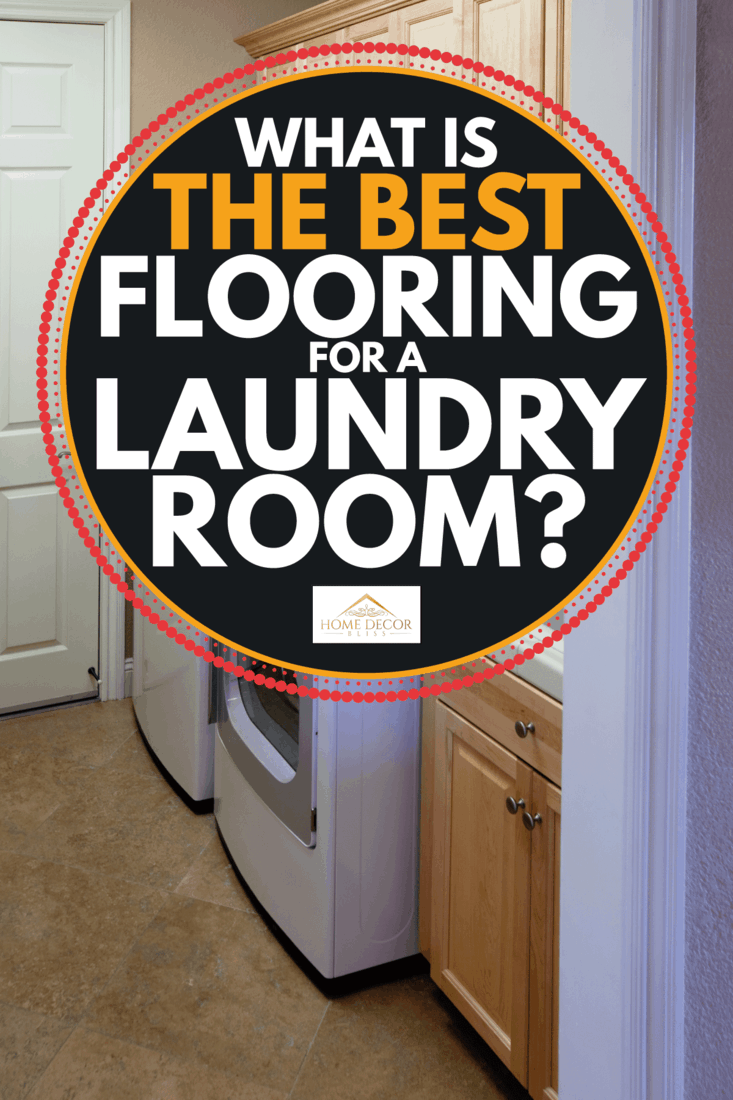
What Makes The Best Floor For A Laundry Room?
In any home, the laundry room has a unique set of challenges. This can make picking out flooring, which bears the brunt of the workload, difficult. Not to mention, you'll want something easy to clean. There's enough work in the laundry room already, without adding extra chores!
The average laundry room houses a lot of chemicals, and spills aren't uncommon. It's probably not hard to picture dropping a capful (or worse) of bleach all over your floor. While this would be an immediate nightmare for something like carpet, there are flooring options available that can stand up this harsh treatment.
Even if your bleach makes it safely to the washing machine, that brings us to the second obstacle. Heavy appliances like the washer and dryer can be tough on floors, particularly when you need to move one for a repair. If you want your floor to look nice for a long time, it better be ready to take a washing machine sliding across it. A tall order, but not impossible!
And, third, a lot of water runs through your laundry room. Of course, with any luck, it doesn't run directly across the floor. But pipes break, machines flood and accidents happen. You don't want to pick a floor that will need to be pulled up if it gets a little wet. Even without major catastrophe, there's still a lot of humidity and dampness in the air thanks to the dryer. If your dryer plugs up a little or fails to vent entirely outside, you don't want a mildewed floor to be your first sign.
Vinyl
We sometimes add affiliate links and content that was curated and created by our team with the help of advanced ai tools to help showcase the best design styles.
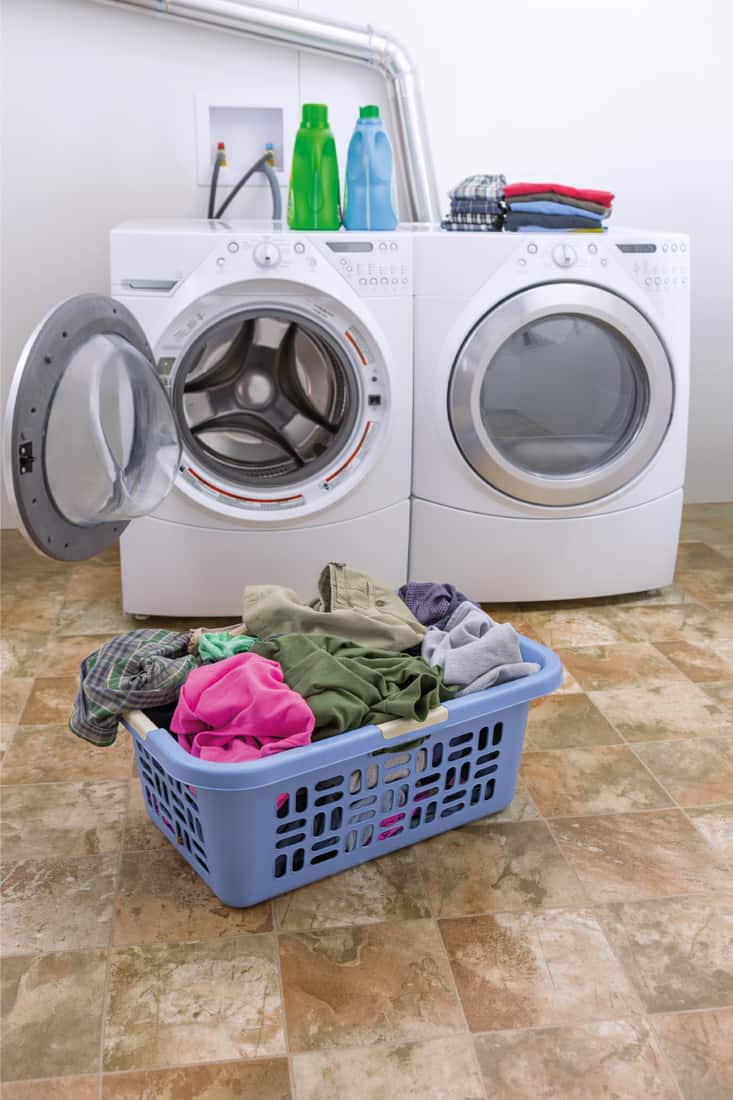
Vinyl flooring has two varieties that are perfect for the laundry room - sheet vinyl or luxury vinyl tile. Both are waterproof, and both are stain-resistant. Either choice is also easy to clean, with basic mopping/sweeping.
Sheet vinyl is the more affordable choice, but it's also a bit less durable. It can dent or tear if not handled carefully. It also comes in long sheets, hence the name, making a DIY install a bit trickier. Sheet vinyl also offers very little insulation if your laundry room isn't already heated.
Luxury vinyl tile, on the other hand, is a bit more...well, luxurious. It costs a little more but also looks nicer, imitating materials such as stone or wood. Tile is also easy to install, coming in squares that are typically each one square foot. It's made of several layers, making it more insulating than sheet vinyl. The final surface has a scratch and water-resistant finish. This makes it easy to care for and maintain.
The biggest downfall to luxury vinyl tile is that it's hard to install if your subfloor isn't smooth - even a few flaws in the floor can bungle the process. While you can technically install over the existing floor, it isn't always a good choice unless that floor is perfect.
Laminate
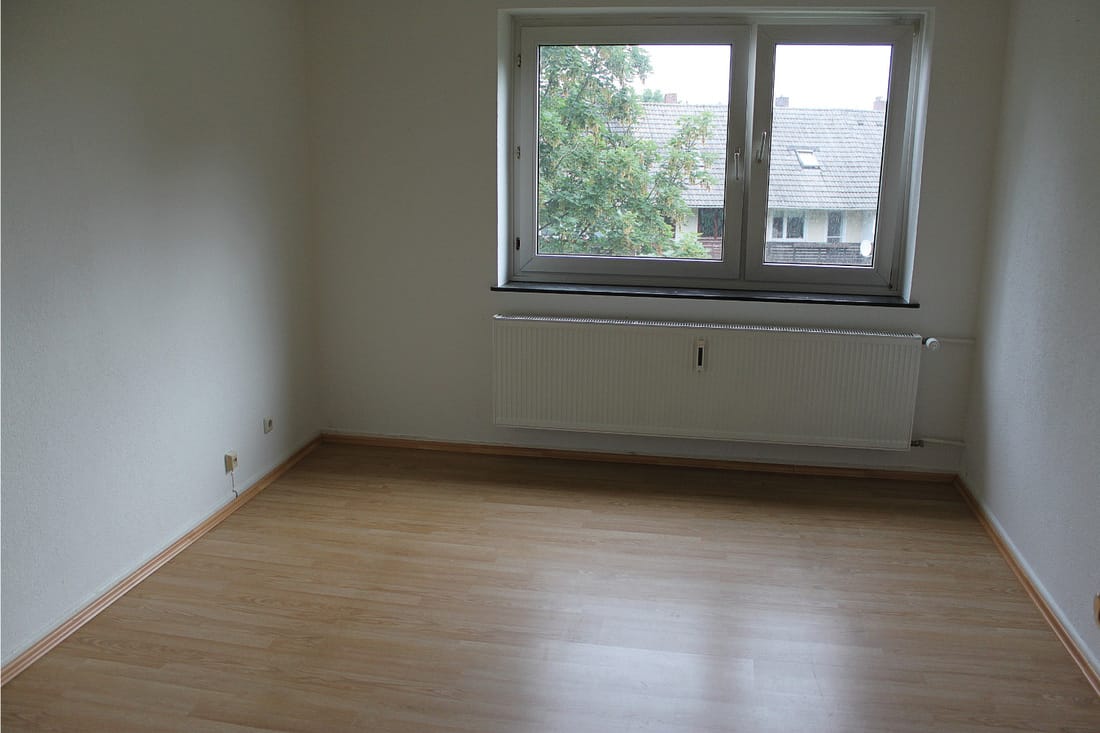
Like luxury vinyl tile, laminate flooring is available that mimics many patterns and materials. Most often, it's designed to look like a wood floor. It comes in interlocking planks that are easy to install.
Like luxury vinyl tile, laminate has a layer on the top surface that's meant to resist scratches, scuffs, and wear. For the best results, pick a floor with a fairly thick "wear layer." This will help increase how long the floor lasts.
The biggest downfall of laminate flooring is that it's not water-proof. Some varieties are more resistant to moisture, but, ultimately, it's a wood-based product. If you don't want to worry about water, go with vinyl plank flooring instead.
Ceramic
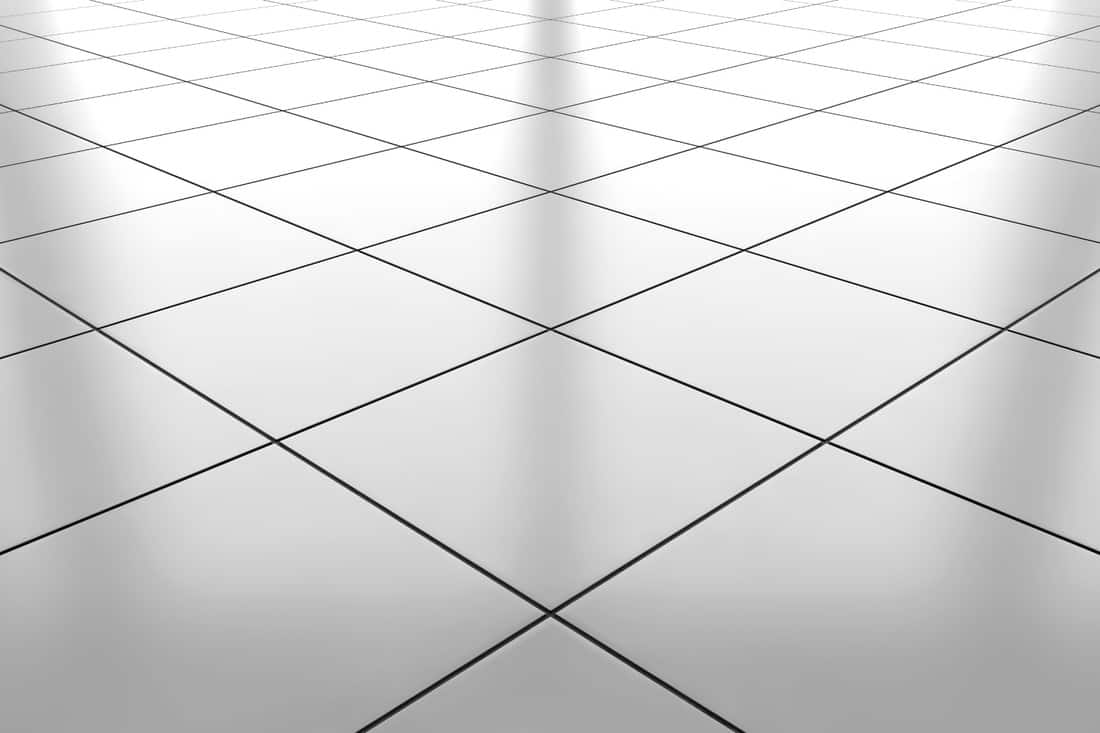
For an affordable choice, ceramic is a great fit. It comes in a variety of patterns, colors, sizes, and shapes. Glazed options are best for a laundry room due to their ability to withstand moisture or stains. Ceramic tile tends to feel cold underfoot, which may be a con in certain climates. However, you can always choose heated tiles if that's a cause for concern.
Ceramic tiles don't offer much sound absorption - the motion of the washing machine will echo against the tiles. If your laundry room is right next to the bedroom, ceramic might not be your dream floor. And for one final negative, ceramic tile comes with grout. That's one more thing to clean. So if you have your heart set on a floor that only needs mopped once in a while, keep looking.
Stone
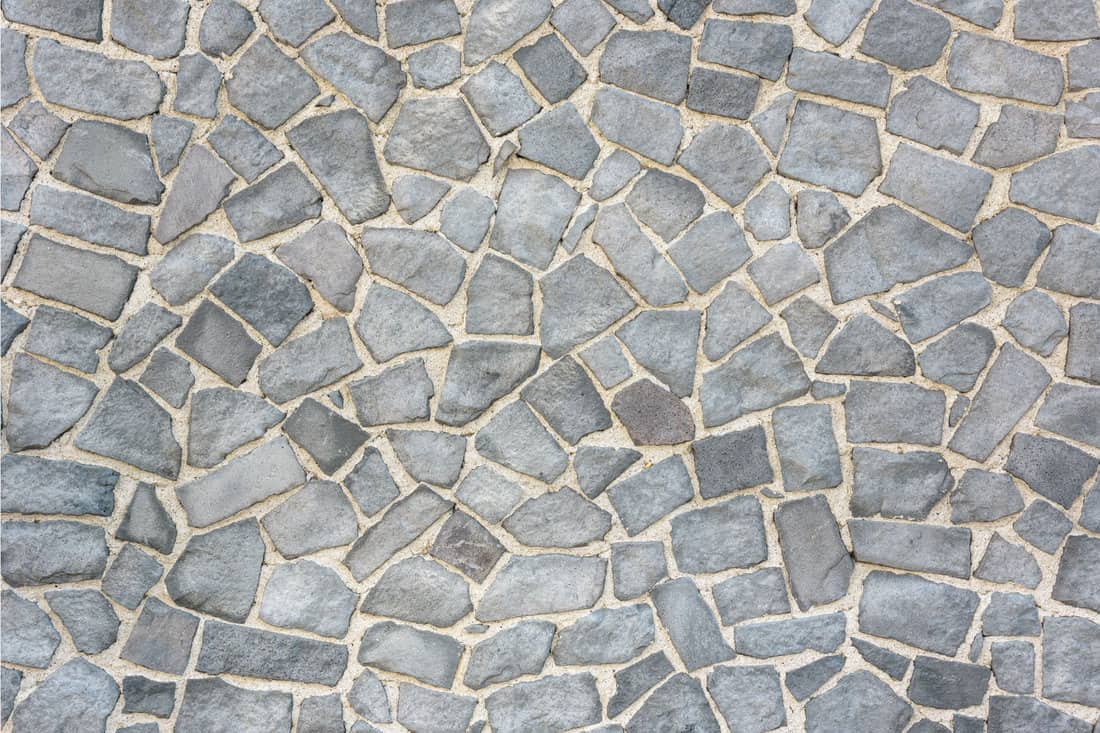
The most expensive choice is stone. It is a distinct and glamorous look, but it's pricey. On the plus side, however, it's one of the only floors that can add resale value to your home. It also lasts the longest - if taken care of properly, it might theoretically last your whole lifetime. That floor is, literally, solid as a rock.
Stone floors come with grout, like ceramic. This can be a hassle to clean since it's not quite as simple as the vinyl floors are. Stone also needs to be sealed regularly, which makes it the most care-intensive option on this list. Stone floors aren't generally DIY like ceramic or luxury vinyl tiles. As a result, you'll need to add the cost of professional installation into the overall project.
Does A Laundry Room Floor Need A Drain?
Technically, there's nothing that says you need to have a drain in the laundry room. There's no code enforcing it. However, if you have the opportunity to put one in, it's always a smart idea.
A washing machine can produce as much as 40 gallons of water during a regular wash cycle. Just imagine that much water accidentally flooding your floor, and you'll understand why a drain is so useful. While water damage can still occur, at least you don't have standing water running to other areas in the house.
If your laundry room is in the basement, it's worth noting that current codes say that new basements must have a drain connected to a sump pit. This rule doesn't exist because of the presence (or lack of) a laundry room, but the two may overlap in some scenarios.
Can You Put A Washing Machine On A Floating Floor?
If you go with vinyl planks or laminate flooring, you might wonder if it's safe to put a washing machine over it later. With all that vibration, how do the planks stay put? Luckily, there's no reason to worry. If the floor was correctly installed, it could take the weight of your appliances with no problem.
How Do I Protect My Floor Under My Washing Machine?
To prevent damage to the floor from a vibrating washing machine, you can place a one-inch piece of plywood below the washer. You can also use special anti-vibration pads, like these:
Click here to see these pads on Amazon.
Finally, to prevent water damage, you can use a drip pan like this. It won't protect from a major leak, but it will keep water off the floor for minor issues.
Click here to see this drip tray on Amazon.
In Closing
Laundry rooms need floors that can be stain and water-resistant, durable, and easy to clean. Flooring choices like vinyl, laminate, ceramic, or stone are all excellent choices. Options such as carpet or hardwood, which are very sensitive to water, should be avoided. Overall, vinyl plank or luxury vinyl tiles are the ideal options for most homeowners. They are affordable, easy to install, the simplest to clean, come in various patterns and colors, and can be water-resistant.
If you enjoyed this article, try these next:

